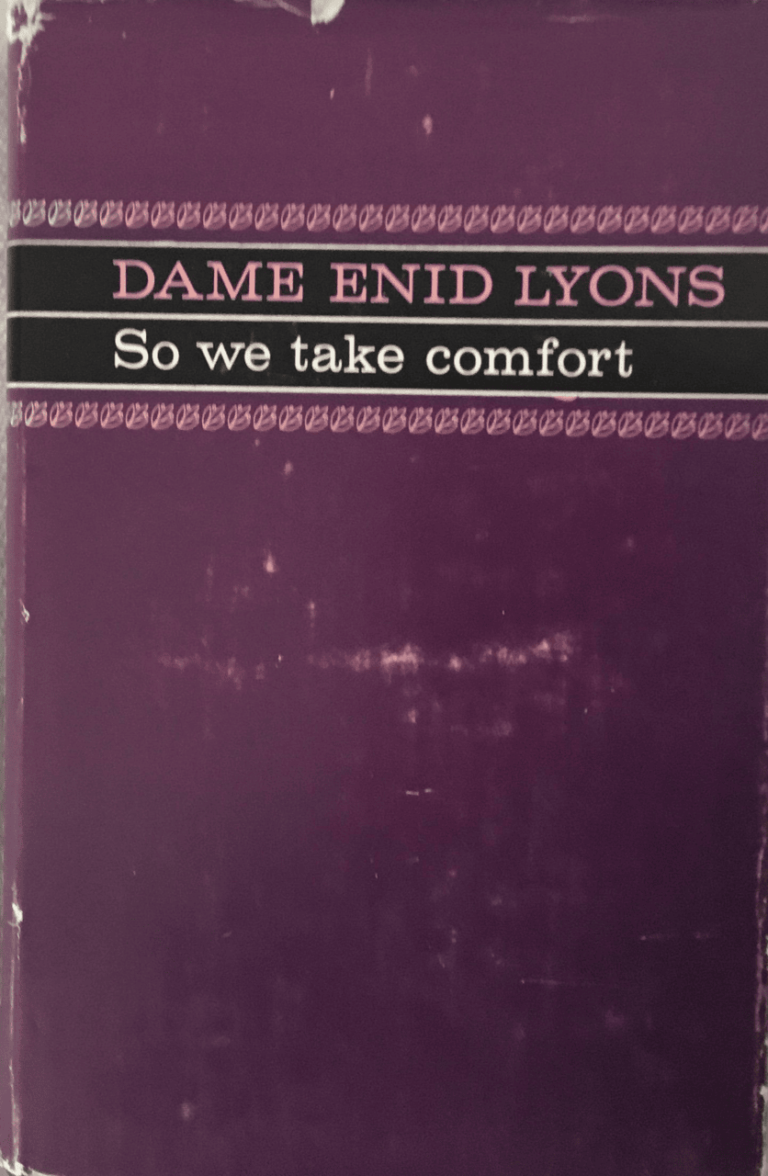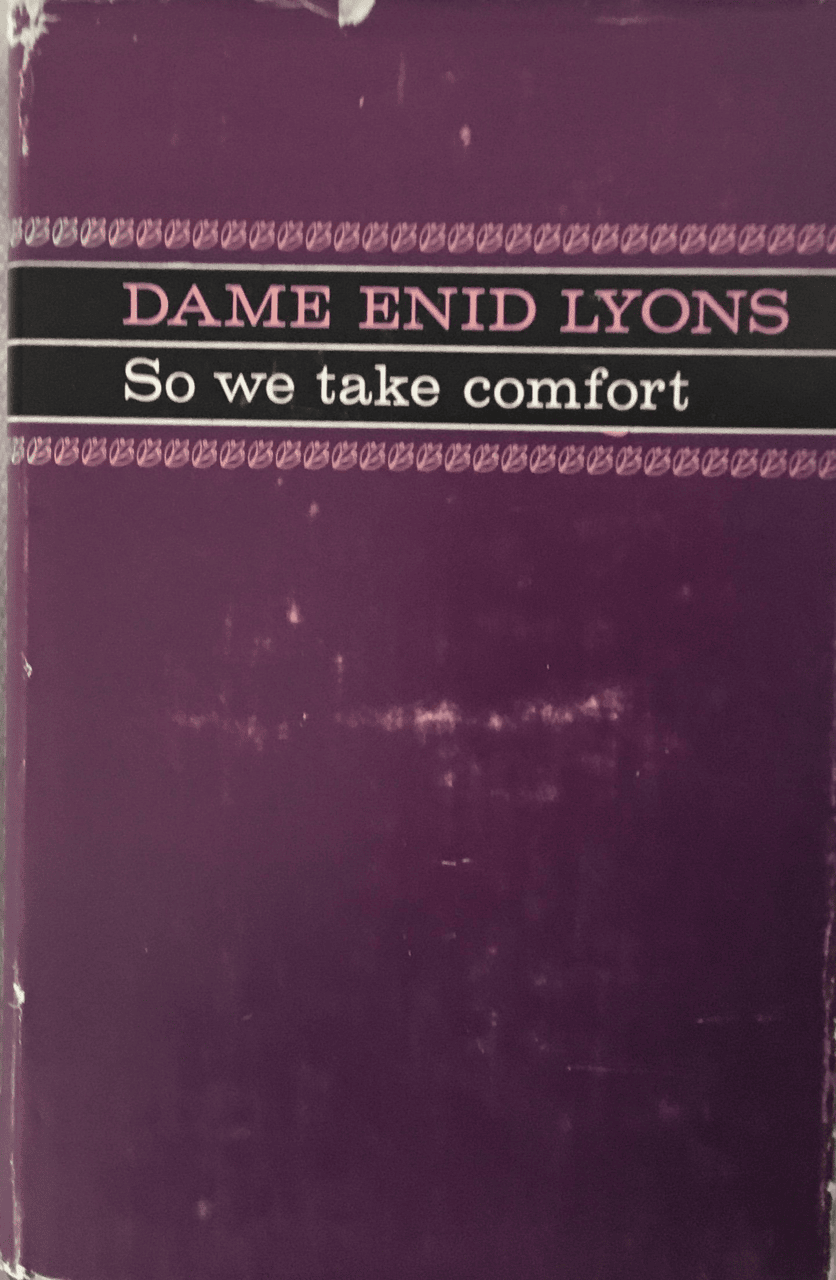Enid Lyons, So We Take Comfort (1965)
Dame Enid Lyons was the first female ever elected to Australia’s House of Representatives, and also the first female member of Cabinet. Robert Menzies appointed her as Vice President of the Executive Council on coming to power in 1949, but despite this elevation Lyons was apparently disappointed not to be given a portfolio, and the relationship between the two was somewhat fraught.
They had a long history, because Dame Enid was of course the wife of Joseph Lyons, the Prime Minister whom Menzies had played a background role in helping to install and who ultimately induced Menzies to enter federal politics in 1934. As her later political career would attest, Enid was no housewife, and was often viewed as the ‘power behind the thrown’. Joseph admitted as much when after first being sworn in as PM, he wrote to his wife that ‘whatever honours or distinctions come are ours not mine’.
The equality of their partnership was perhaps surprising, considering Joseph had first met Enid when she was just 15 and he was already a Tasmanian state MP. Moreover, Joseph convinced Enid to convert to Catholicism after she had been an active member of the Methodist Church. Displaying the convert’s zeal, she became a devout Catholic giving birth to 12 children, all but one of whom grew into adulthood – despite fracturing her pelvis from her first labour.
A tremendous platform speaker, Enid first ran for office as a member of the Labor Party in the 1925 Tasmanian state election. By then, Joseph was Premier, and she only lost by 60 votes, which is quite remarkable considering that Tasmania would not have its first female state MP until 1948.
When Joseph moved to federal politics in 1929 and was immediately elevated to the ministry, the frequent absences from the family home took a significant toll. Nevertheless, Enid was frequently to be found by her husband’s side offering wise counsel. She would play a very important role in convincing her husband to abandon Labor over its mishandling of the Great Depression, a move which ultimately saw him become prime minister as head of the new United Australia Party. For this reason, she has sometimes been typecast as an overlying ambitious ‘Lady Macbeth’ type figure.
As well as being an influence behind the scenes, Enid had a very public and outwardly political face. Even while pregnant she played a central role in the UAP’s first political campaign, with Menzies allegedly complaining that she was ‘stealing the limelight’ from the actual politicians. Nevertheless, he grew to respect her immense talents, and when she stood for federal Parliament in 1943, Menzies would visit Tasmania to campaign for her election even though he was then a mere backbencher.
But despite this positive association, Enid was irrecoverably torn over what she saw as Menzies’s role in the lead up to Joseph’s death on Good Friday 1939. Menzies had given a provocative speech in October 1938 which was taken as a ‘treacherous attack’ on his PM, and he later resigned from Cabinet over the shelving of the Nation Insurance Scheme – both of which Enid believed to be important contributors to the stress which caused Joseph’s premature passing.
It is perhaps a testament to this frosty relationship that Menzies’s copy of So We Take Comfort remains unsigned, when similar contemporary political memoirs in his collection almost always contain a heartfelt note. But Enid still had some courtesy, as since Menzies was still PM at the time of the book’s publication, she omitted any reference to his name when discussing the alleged ‘plotting’ against her husband in the late 1930s, and indeed Menzies’s name only appears 8 times in the entire book.
While Dame Enid would send Sir Robert a pleasant letter complimenting him for the nice things he had to say about Joseph in Menzies’s own memoir Afternoon Light, she would not hold her tongue forever. Her later memoir, Among the Carrion Crows published in 1972 is far more candid. When Enid sent Menzies a copy of the manuscript he was recovering in hospital and was quite aghast at what he read. Sir Robert wrote to Dame Enid that:
‘Your charge of disloyalty astonishes me… two people looking at or participating in a series of events can quite honestly come out of the process with entirely different understandings of what has gone on’.
You might also like...
Sign up to our newsletter
Sign up for our monthly newsletter to hear the latest news and receive information about upcoming events.



